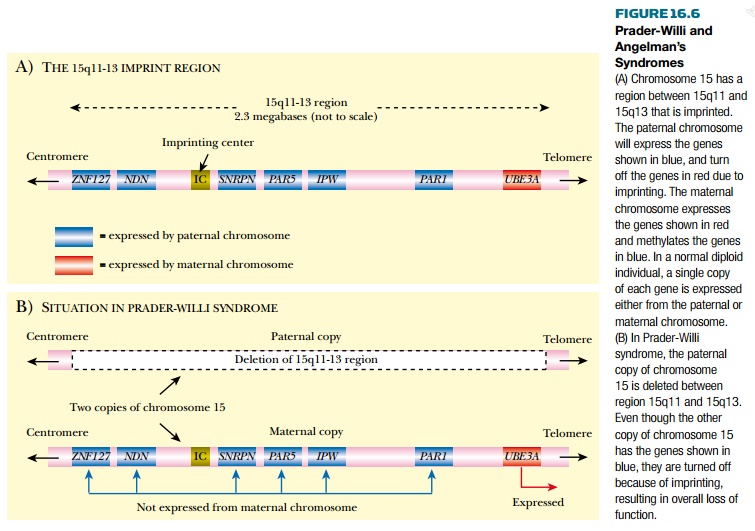Chapter: Biotechnology Applying the Genetic Revolution: Inherited Defects
Defects in Imprinting and Methylation
DEFECTS IN IMPRINTING AND METHYLATION
Genetic imprinting is due to
the effects of methylation on gene expression. Typically, one copy of a gene is
methylated to prevent its expression. Imprinting occurs when methylation
patterns present in the gametes survive to affect gene expression in the new
organism. For a few genes, methylation patterns differ in the male and female
gametes. Consequently, whether a particular copy of a gene is expressed may
depend on whether it was inherited from the father or the mother. Such
inherited changes that are not due to alterations in the DNA sequence are known
as epigenetic.
Prader-Willi syndrome and
Angelman’s syndrome are due to defects in neighboring genes on chromosome 15 at 15q11-q13 that are
subject to imprinting. Whether this region came from the sperm or the egg
determines its pattern of methylation and therefore its pattern of gene
expression (Fig. 16.6). About 75% of cases of Prader-Willi and Angelman’s
syndromes are due to deletions. Less often they result from point mutations,
imprinting errors, or inheriting both copies of chromosome 15 from one parent.
Prader-Willi syndrome develops when the paternal copy of 15q11-q13 is deleted
or mutated and the maternal copy of this region is methylated. Conversely,
Angelman’s syndrome results from loss of function of genes on the maternally
derived chromosome and methylation of the paternal chromosome. The imprinting
patterns turn off the functional copy of these genes, thus causing the defects.
Both syndromes cause mental retardation, but differ in other associated
symptoms. For example, Prader-Willi syndrome also causes gross obesity, and
Angelman’s syndrome causes growth retardation and hyperactivity.

Related Topics